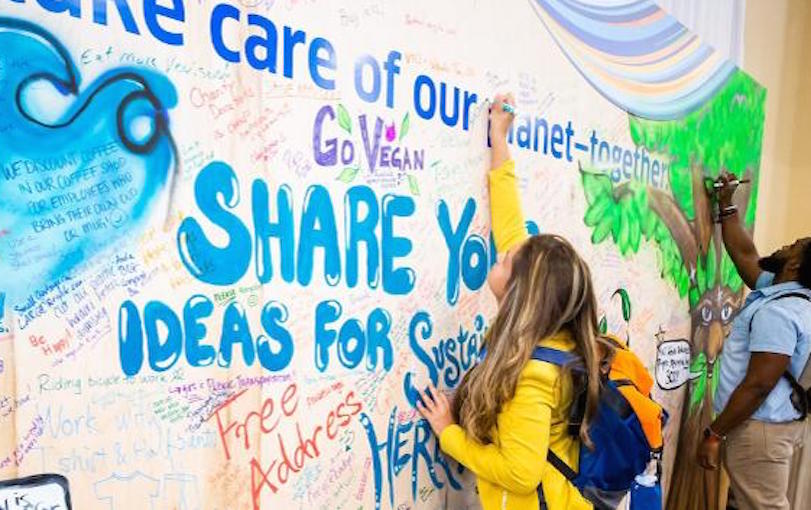How Brands should be approaching sustainability in experiential marketing
With fires raging through the Amazon, Climate Week NY in full swing following Greta Thunberg’s incredibly moving speech to the UN and consumer environmental awareness at an all-time high, it’s an important moment for the planet, and imperative for sustainability to be front and center for brands. While consumers don’t expect perfection when it comes to environmental practices, they clearly want change, which means they want to know that company values are aligned with their own.
Historically, experiential marketing has been an extremely wasteful discipline, with bottom lines often taking precedence over being environmentally conscious. Travel emissions, mass product sampling, wasted food and beverage, not to mention the residual waste from events, have meant that activations often impact the environment far more than you might expect. Waste footprints vary between events, but even with a good disposal programme, mid-size events can result in up to 41% of materials deposited in landfills – with just 35% recycled, 21% composted and 3% donated (MetGreen – 2104).
So, as we embrace Climate Week and look at this moment through a marketing lens, we need to ask ourselves – how can brands and agencies best address the issue of waste when it comes to using their experiential platform?
Assess the impact at every stage
Campaigns, especially experiences, create waste. But it’s not always the obvious aspects that need to be considered when assessing the impact of an experiential activation on the environment. Brands should be placing their projects under the microscope from when experiential strategy begins, all the way through to execution. Looking at everything from travel emissions linked to client meetings and importing products, to engaging with vendors that share the same values and sourcing and disposing of environmentally friendly materials are all key components in ensuring your campaign remains as sustainable as possible.
Show you care by providing sustainable touch points
If you have to flyer, provide access to recycling bins. Is sampling unavoidable? If so, think about providing compostable (or even edible) cups and utensils, and then ensure that there are the appropriate touch points on site for consumers to compost the used materials. Also, don’t just go for the typical customer swag items often distributed en masse at brand experiences, and instead consider gifting consumers charity donations or a digital reward.
Incorporate sustainable practices into your offering and your new business strategy
As environmentally sound practices increasingly become the norm, it’s important for marketers to build sustainable offerings into their new business strategies for clients. Integrating sustainable practices into corporate culture is integral. Doing this slowly but surely is fine – consumers don’t expect brands to adopt a zero-waste policy from day one, but they need to know that the brand they are supporting is also working to support the planet. A great way to do this is by providing clients with ongoing sustainability audits, so that brands can gain a true understanding of how their campaigns affect the environment and how they can improve their processes for future campaigns.
We all have a responsibility to think about sustainability, and as marketers, environmental awareness is no longer simply an add-on, it’s a non-negotiable that needs to be a constant part of the conversation. Brands need to be aware of how their product or service affects not just the industry and their pockets, but the wider natural and human environment. While banning single-use plastic has been a great first step, we need to continue to make strides as an industry as there is much work to be done. As we can see by the conversations happening this week, sustainability isn’t just a trend that will dissipate by 2020, it’s a global issue that will continue to impact our world for years to come and as experiential marketers, we must ensure we’re doing our part – “The world is waking up. And change is coming, whether you like it or not.” – Greta Thunberg, United Nations General Assembly, 23rd September 2019.
Zoe Barker is Senior Account Manager at Sense New York.

